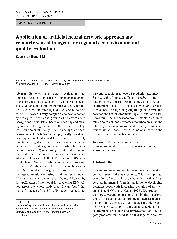摘要
Eco-environment quality evaluation is an important research theme in environment management. In the present study, Fuzhou city in China was selected as a study area and a limited number of 222 sampling field sites were first investigated in situ with the help of a GPS device. Every sampling site was assessed by ecological experts and given an Eco-environment Background Value (EBV) based on a scoring and ranking system. The higher the EBV, the better the ecological environmental quality. Then, three types of eco-environmental attributes that are physically-based and easily-quantifiable at a grid level were extracted: (1) remote sensing derived attributes (vegetation index, wetness index, soil brightness index, surface land temperature index), (2) meteorological attributes (annual temperature and annual precipitation), and (3) terrain attribute (elevation). A Back Propagation (BP) Artificial Neural Network (ANN) model was proposed for the EBV validation and prediction. A three-layer BP ANN model was designed to automatically learn the internal relationship using a training set of known EBV and eco-environmental attributes, followed by the application of the model for predicting EBV values across the whole study area. It was found that the performance of the BP ANN model was satisfactory and capable of an overall prediction accuracy of 82.4%, with a Kappa coefficient of 0.801 in the validation. The evaluation results showed that the eco-environmental quality of Fuzhou city is considered as satisfactory. Through analyzing the spatial correlation between the eco-environmental quality and land uses, it was found that the best eco-environmental areas were related to forest lands, whereas the urban area had the relatively worst eco-environmental quality. Human activities are still considered as a major impact on the eco-environmental quality in this area.
- 出版日期2007-5
- 单位浙江大学
